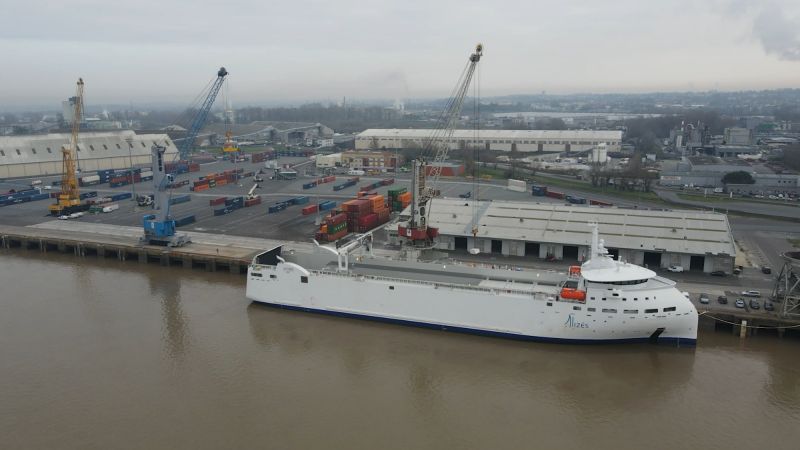Bolloré Logistics has organised the door-to-door transport of a satellite and its various components from the customer’s site in Toulouse to the Guiana Space Centre in Kourou. The cargo was carried by the Canopée on its first transatlantic crossing.
Weighing 42 tonnes in total, the load was transported over nearly 7000 km during a three-week period.
Bolloré Logistics is also the first shipper to transport cargo on the first hybrid vessel. This next-generation cargo ship was designed to meet the specific needs of rocket and satellite transport: it offers minimal vibration conditions thus limiting the impact of any shocks and vibrations that might affect components during long-distance transport.
Also read: VIDEO: Sailing freighter Canopée leaves Neptune yard for sea trials
Canopée
Canopée’s structure has been specially designed to transport containerised sections of Ariane 6 launchers. The vessel will transport Ariane rockets from Europe to French Guyana. As such, it has been specifically designed to be able to navigate upriver at Kourou, right to the dock near the Spaceport.
The Canopée was designed as a sailing freighter. The 121-metre-long ship will be equipped with its four 30-metre-high Oceanwings in July, according to French website Transport & Logistique, with a first sailing under wind power scheduled for September. The Oceanwings sail panels will cover an area of 375 square metres each and should save around 35 per cent on fuel consumption.
According to the French client Alizés, the Canopée is a prototype, but it is not clear how many ships in total will be built. Groot Ship Design supplied the naval architecture and all engineering for steel construction.
Depending on its speed, the wind-powered vessel is expected to cut carbon emissions by twenty to thirty per cent compared to an equivalent ship with conventional propulsion.
‘Wind-powered propulsion is a solution for the future that we are exploring with great interest,’ says Rédouane Akchouch, Sales Director Europe for Aerospace and Defence at Bolloré Logistics. ‘It has the advantage of meeting all the technical constraints imposed by the space industry, while offering a decarbonised transport plan over a distance of several thousand kilometres. The data collected and the feedback received from this initial transport have fully confirmed our prior analysis and our desire to continue our collaboration for future projects.’
Picture by Bolloré Logistics.
Also read: Sailing freighter Canopée reaches Netherlands to be completed at Neptune








